
Direction of Intention
My God, I give you this day.
I offer you, now,
all of the good that I shall do
and I promise to accept,
for love of you,
all of the difficulty that I shall meet.
Help me to conduct myself
during this day
in a manner pleasing to you.
Amen.
Every year at Christmas, the men in my family receive a calendar from Auntie Terry. Specifically, we receive a Catholic calendar—an impassioned, illustrated, and edifying twelve-month guide to religious practice and patrons, every day annotated with the liturgies, sorrows, and luminous mysteries of the Catholic year. I assume the calendars are distributed only to the men because our souls are most in jeopardy, and perhaps our routine needs, such as figuring out what day it is, might somehow be the catalyst for our spiritual salvation.
Usually the calendar hangs dutifully, but inconspicuously, in a bedroom. My father’s calendar inevitably hangs in my parents’ bedroom, and in my home the tradition continues. However, the 2008 calendar from Terry—my favourite aunt by the way—was of a quality that earned it a place on the kitchen wall, as it featured Renaissance paintings and illuminated texts, rather than the usual flat pastel-coloured images of martyrs, nuns, and rows of smiling children sitting in front of massive Catholic computers. When I opened the calendar in January 2008—during the time I had started to compile the Writer’s Pantheon—I discovered the grand portrait for that month was Saint Francis de Sales, the 24th of January being his feast day. (A feast day is a day sacred to a particular saint, and the Catholic year offers an all-you-can-eat buffet of feast days. January 24, for example, is the feast day of at least a dozen other saints aside from de Sales, including the exotic but spiritually nourishing St. Thyrsus, St. Projectus, and St. Exuperantius.)
The calendar informed me that de Sales is the “Patron of the Catholic Press,” and checking against my list of literary divinities, I found he was indeed present among the heavenly body I’d observed so far, with additional claims as a patron of authors, journalists, and others involved in the craft of language. For example, he developed his own sign language to convey his teachings to the hearing impaired; consequently he also serves as patron saint of the deaf. I took de Sales’ inaugural place in Terry’s calendar as a divine signal that he should be my second illustration, in particular as my residual Catholic guilt compelled me to follow my work on Titivillus with a more godly figure. (Conversely, with the New Year looming as I write, de Sales and company are about to be replaced on the kitchen wall by The Witches Calendar. My apologies, Auntie Terry.)
Francis de Sales earned his status as a literary patron and, according to Pope Pius IX, “The Master and Restorer of Sacred Eloquence”, thanks to his prolific writings, including sermons, letters, and prayers (such as “Direction of Intention” above), for championing spiritual literacy in his writings on the proper contemplation of books, and in particular for using the press actively to defend and advance his faith. His most renowned work is Introduction to the Devout Life (1609), a book that confirms the necessity of a literary muse, even for a saint: the text was inspired by Louise de Charmoisy, whom he called Philothea, or “Lover of God”. (For her charms, Madame de Charmoisy receives honorary membership in the Writer’s Pantheon.)
Saint Francis de Sales maintains a vital and prolific influence in the spiritual and professional endeavours of contemporary Catholic writers. He continues to be invoked to support the efforts of individual writers (the book Saintly Support: A Prayer For Every Problem [2003] includes a plea to de Sales for dedication, inspiration, ideas, and intercession with God “as I attempt to bring the written word to the world”), and he has served as the catalyst for institutions such as the International Commission of Salesian Studies (established to “disseminate on a global scale information dealing with salesian thoughts, work and studies”). When G.K. Chesterton and colleagues founded the Catholic Writers Guild of England and Wales in 1931, de Sales was chosen as their patron, and although the saint is not associated explicitly with the American Catholic Writers Guild, that organization’s prayer, excerpted here, is a good point of departure if you are looking for Saint de Sales’ divine intervention in your work:
My God, I give you this day.
I offer you, now,
all of the good that I shall do
and I promise to accept,
for love of you,
all of the difficulty that I shall meet.
Help me to conduct myself
during this day
in a manner pleasing to you.
Amen.
Every year at Christmas, the men in my family receive a calendar from Auntie Terry. Specifically, we receive a Catholic calendar—an impassioned, illustrated, and edifying twelve-month guide to religious practice and patrons, every day annotated with the liturgies, sorrows, and luminous mysteries of the Catholic year. I assume the calendars are distributed only to the men because our souls are most in jeopardy, and perhaps our routine needs, such as figuring out what day it is, might somehow be the catalyst for our spiritual salvation.
Usually the calendar hangs dutifully, but inconspicuously, in a bedroom. My father’s calendar inevitably hangs in my parents’ bedroom, and in my home the tradition continues. However, the 2008 calendar from Terry—my favourite aunt by the way—was of a quality that earned it a place on the kitchen wall, as it featured Renaissance paintings and illuminated texts, rather than the usual flat pastel-coloured images of martyrs, nuns, and rows of smiling children sitting in front of massive Catholic computers. When I opened the calendar in January 2008—during the time I had started to compile the Writer’s Pantheon—I discovered the grand portrait for that month was Saint Francis de Sales, the 24th of January being his feast day. (A feast day is a day sacred to a particular saint, and the Catholic year offers an all-you-can-eat buffet of feast days. January 24, for example, is the feast day of at least a dozen other saints aside from de Sales, including the exotic but spiritually nourishing St. Thyrsus, St. Projectus, and St. Exuperantius.)
The calendar informed me that de Sales is the “Patron of the Catholic Press,” and checking against my list of literary divinities, I found he was indeed present among the heavenly body I’d observed so far, with additional claims as a patron of authors, journalists, and others involved in the craft of language. For example, he developed his own sign language to convey his teachings to the hearing impaired; consequently he also serves as patron saint of the deaf. I took de Sales’ inaugural place in Terry’s calendar as a divine signal that he should be my second illustration, in particular as my residual Catholic guilt compelled me to follow my work on Titivillus with a more godly figure. (Conversely, with the New Year looming as I write, de Sales and company are about to be replaced on the kitchen wall by The Witches Calendar. My apologies, Auntie Terry.)
Francis de Sales earned his status as a literary patron and, according to Pope Pius IX, “The Master and Restorer of Sacred Eloquence”, thanks to his prolific writings, including sermons, letters, and prayers (such as “Direction of Intention” above), for championing spiritual literacy in his writings on the proper contemplation of books, and in particular for using the press actively to defend and advance his faith. His most renowned work is Introduction to the Devout Life (1609), a book that confirms the necessity of a literary muse, even for a saint: the text was inspired by Louise de Charmoisy, whom he called Philothea, or “Lover of God”. (For her charms, Madame de Charmoisy receives honorary membership in the Writer’s Pantheon.)
Saint Francis de Sales maintains a vital and prolific influence in the spiritual and professional endeavours of contemporary Catholic writers. He continues to be invoked to support the efforts of individual writers (the book Saintly Support: A Prayer For Every Problem [2003] includes a plea to de Sales for dedication, inspiration, ideas, and intercession with God “as I attempt to bring the written word to the world”), and he has served as the catalyst for institutions such as the International Commission of Salesian Studies (established to “disseminate on a global scale information dealing with salesian thoughts, work and studies”). When G.K. Chesterton and colleagues founded the Catholic Writers Guild of England and Wales in 1931, de Sales was chosen as their patron, and although the saint is not associated explicitly with the American Catholic Writers Guild, that organization’s prayer, excerpted here, is a good point of departure if you are looking for Saint de Sales’ divine intervention in your work:
Guide our minds, our hearts, our hands,as we write, speak, illustrate –help our words to live in union with the Word.
Sources
Catholic Fire: St. Francis de Sales
http://catholicfire.blogspot.com/2008/01/st-francis-de-sales-bio-favorite-quotes.html (accessed 18 December 2008)
Catholic Online
http://www.catholic.org/ (accessed 20 December 2008)
The Catholic Writers Guild (American)
http://www.catholicwritersguild.org/ (accessed 18 December 2008)
Francis de Sales
http://en.wikipedia.org/wiki/Francis_de_Sales (accessed 18 December 2008)
An Introduction to the Devout Life
http://books.google.com/books?id=d8kCAAAAQAAJ&printsec=titlepage&source=gbs_summary_r&cad=0 (accessed 20 December 2008)
International Commission on Salesian Studies
http://www.franz-von-sales.de/ (accessed 18 December 2008)
The Keys: The Catholic Writers Guild of England and Wales
http://www.catholicwritersguild.co.uk/ (accessed 18 December 2008)
The Saints Among Us 2008. Calendar published by Kellmark Corporation (JRK Line), 2007.
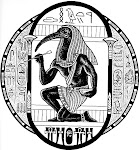
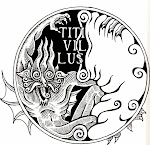
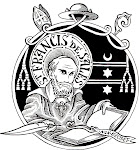
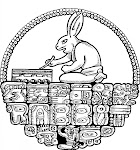
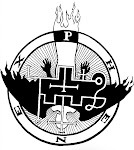




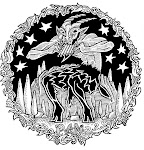

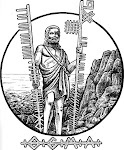
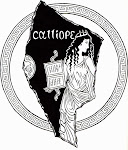
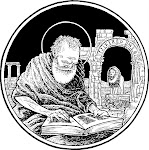




No comments:
Post a Comment